Poisoned Feather. Poverty, wealth, and the Zemsky seal (continued)
(Proverbs 24: 30-34)
It should be noted that the underestimation of the role of raising the material well-being of certain strata in society that existed in Russia was directly related to the traditional lack of financial resources. Money in Russia is constantly lacking. There was no money for new ships, and they borrowed money from France, for a decent remuneration of the faculty’s staff, for self-sacrificing labor of regional doctors and teachers, and even for their support - the officer corps - the tsarist government was constantly underpaid! Many historians at the regional level expressly point out that this deficiency did not allow satisfying the literacy needs of workers, as well as their children, and also raising the production itself to a higher level.
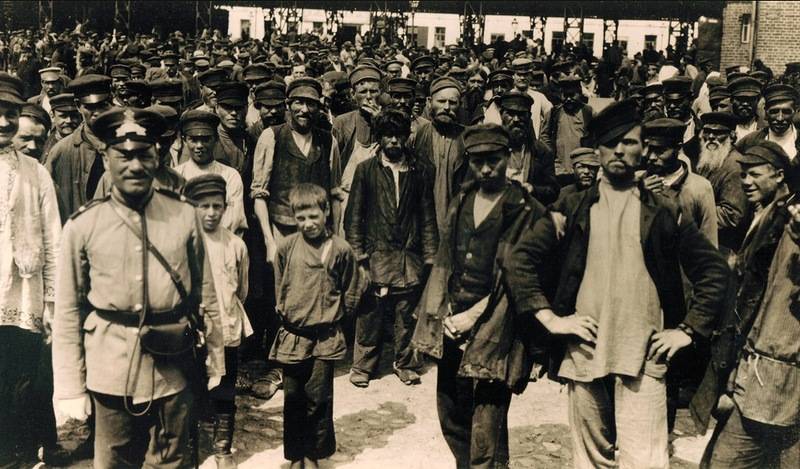
"Every artisan" (a term beginning of the twentieth century) and policeman.
In Russia of the end in the 19th - the beginning of the 20th century, it was required to have a rank not lower than the rank of colonel and to certainly get a nobility in order to be a respected person and at the same time not need money. But only the general's rank made it possible to feel a financially independent member of society, since the money allowance gap in the imperial army between the junior officers and the generals sometimes differed 9 - 10 times.
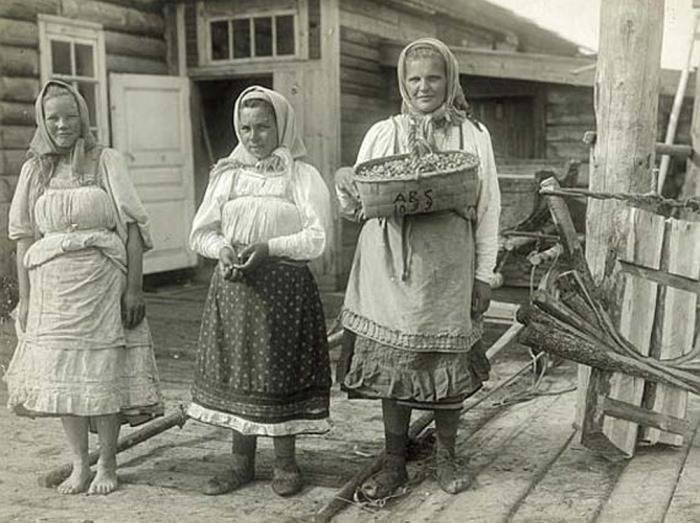
Russian women peasant women of the early twentieth century.
Peasant family.
The situation began to change somewhat just in the nineteenth and early twentieth centuries, which was immediately noted by A.P. Chekhov. Professor Serebryakov, a man of humble origin, put out by him in the play Uncle Vanya (1896) marries the daughter of the senator just to get upstairs. Moreover, the historian S. Ekshut on the pages of the magazine “Rodina” noted that Professor Serebryakov, in addition to vulgarity, was an example of a new social mobility: not only individual, but also corporate. But even he, having a high social status of a professor, does not have high incomes and, accordingly, does not have material independence. That is why, having retired, Serebryakov decides to sell the estate that his first deceased wife brought him as a dowry. For the heroes of the Chekhov's drama "Three Sisters" (1900) of the Prozorov sisters (although they are all generals' daughters!), Moving to Moscow, where their brother Andrei must become a university professor, is of the same importance. But, alas, this time of a certain material wealth and social stability was very short for this category of Russian society. In October 1917, it ended once and for all.
But this is already the intelligentsia: a circle of Moscow philosophers, authors of the journal Issues of Philosophy and Psychology: Solovyov Vladimir Sergeevich, Trubetskoy Sergey Nikolaevich, Grot Nikolai Yakovlevich, Lopatin Lev Mikhailovich. 1893.
However, it was necessary to encourage not only the Russian professorship, but also the Zemstvo and municipal publications, freeing them from taxes, as well as by issuing substantial lifting amounts to the publication. Accordingly, the publications pursuing the pro-government policy should subsequently be fully supported, and journalists should be helped materially. It was necessary to organize the release of free editions for peasants and workers, containing all sorts of crossword puzzles and raffles with prizes, as which to present gifts on behalf of the royal family, etc.
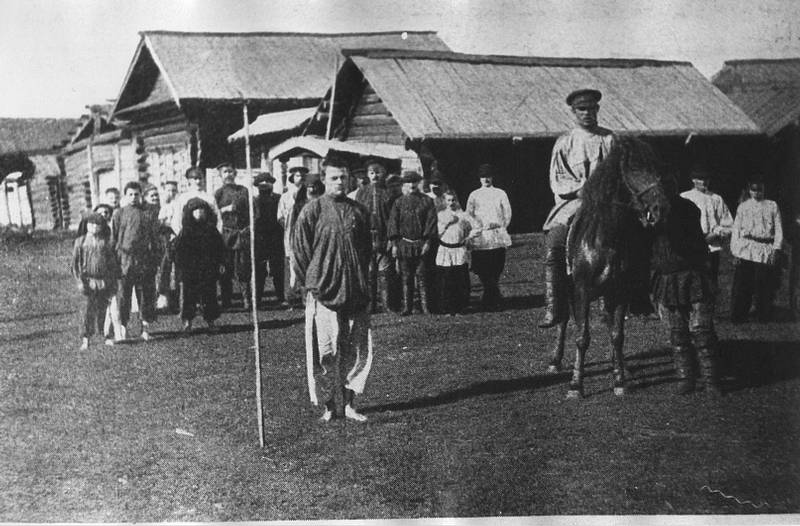
Migrant peasants, 1910 year. Siberia.
Extremely low in Russia and the educational level of its population. If you compare it with neighboring Japan, which took the path of market relations at about the same time as its northern neighbor, the data will be simply depressing: in 1902, out of every 100 boys in Japan, 88 went to primary school, and 1907 went to 97. In Russia, for every 100 people, on average, there were only 3,3 people who were literate. “You will not find in the country even the most seedy village, in which there would be no primary school!” - Former Japanese Prime Minister Sigenobu Okuma said proudly in 1909, and in Russia they couldn’t even dream of something like that . At the same time, on average, every third resident of Russia received criminal experience in 1914 in Russia, the increase in crime almost 10 times the growth rate of its population.
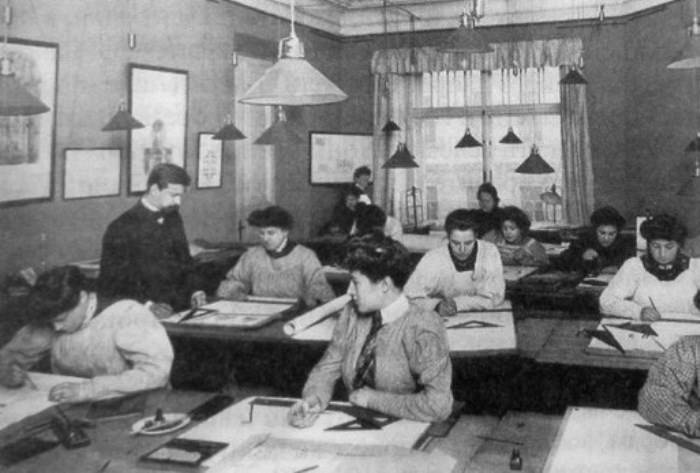
Female students of the Higher Women's Architectural Courses E. Bagaeva in St. Petersburg.
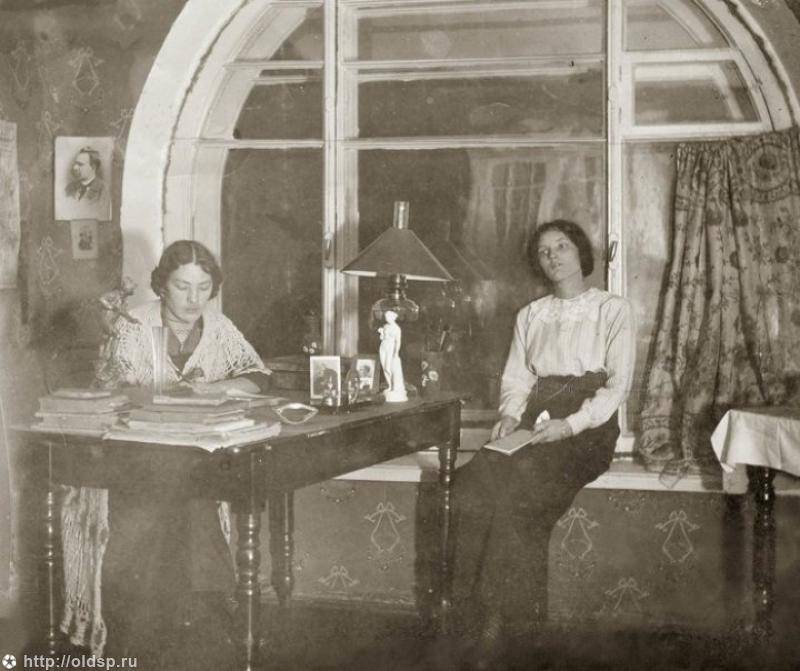
Well, this is a female student at home. And surely there was such a kerosene lamp on the table under a green lampshade ...
It is interesting that many moments similar to those that appear today, the newspapers noted even then. You can give an example with children's entertainment reading. Many figures of our culture, as well as VO readers, talk about the alleged dominance of Western films and literature in our country. Let's not argue with this statement, but what is interesting is that the same was said in 1910 year! For example, in his review of the new catalog of children's literature M.O. Wolf in 6 No. 1910 for the year the newspaper Penza Provincial Gazette wrote that for some reason books about the life of “Western European peoples, Americans, Asians, the novels of J. Verne, Cooper, Mariet and Mein Reed dominate, and there is almost nothing about Russian the people. There are books about the life of France, but not about Lomonosov. While the books of Charskaya are “when the mountaineers are fighting for freedom, this is possible, and when Russia is fighting with Tatarism ... this is harmful.” On the basis of this, the newspaper concluded that, reading such books, the child, they say, becomes a foreigner in the soul, and it is not surprising that our children grow up as enemies of their homeland. Journalists have always liked such harsh phrases and statements based on hasty conclusions, haven't they? Although indeed, schoolboys, and Penza among them, literally starved in order to buy editions of pamphlets with stories about the adventures of American detective Nat Pinkerton, despite the fact that teachers unanimously condemned these publications, stating that these brochures were “immoral, dirty and they can only respond to rude requests of an illiterate reader. ” All this is true, but they have never found a substitute! We tried to act only prohibitive methods. But it is well known that many of the Pinkertons were the work of A. Kuprin, who did not disdain to write them for the purpose of earning money. But to hire writers so that from the number in the number in the same provincial, provincial or municipal newspapers to publish better analogs would not occur to anyone, so the inability to carry out information policy in society is evident even in this example.
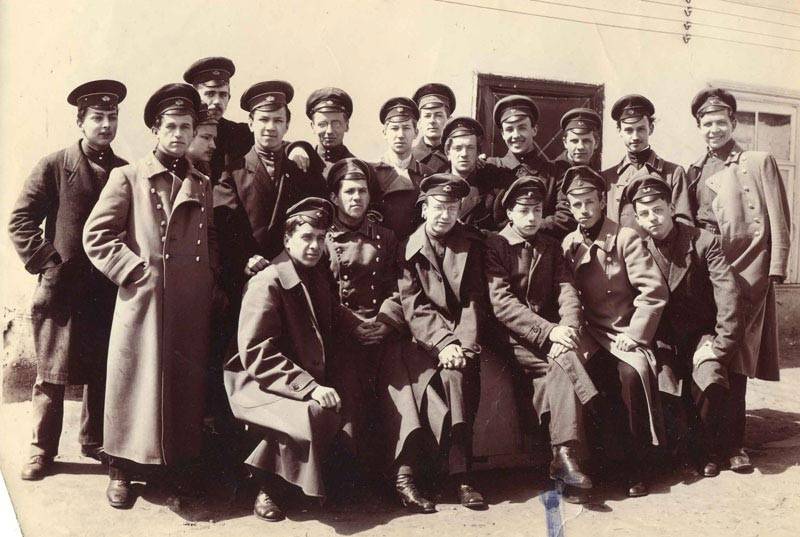
High school students. Not "kids", but just some stallions ... Also, "Pinkerton" was read out ...
Surprisingly, it turns out that, although the Russian state tried in every way to regulate and control the life and spiritual thoughts of its citizens, the information and social policies of tsarism in the last years of the empire did not at all take into account the magnitude or the demands of society. In the end, all her historical development (as before!) followed the extreme strain of available social resources and, even more dangerous, exacerbated all the contradictions that had arisen in Russian society to the extreme, which led the Russian autocracy to such a sad end in 1917.
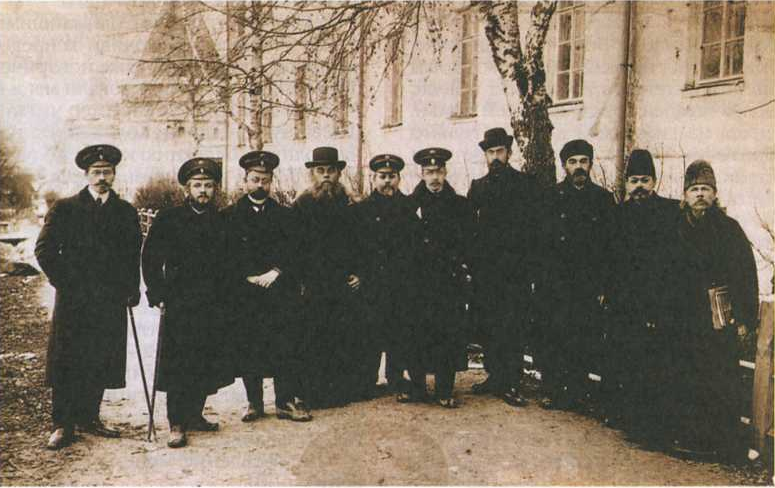
Teachers of the early twentieth century. All in uniform. Cane in the hands. Watches (they are not visible here, however) on chains and with hooks.
Interestingly, the above, although in other words, was noted in the Penza district press. The newspaper wrote, for example, over the years of its activities in the province 40 increased the number of literate. And it was good, right? But at the same time “our peasant lives in the same dirty, miserable hut with a thatched roof, constantly suffers from malnutrition, crop failure and hunger strikes turned into a chronic economic illness, and that, in general, he is extremely ignorant, and as a result he finally lost his sense of legality and respect for authority ... " We emphasize only the words “lost the sense of legality”, which once again shows that a systemic crisis of autocracy took place in the country, both in the economy and in politics, and in the sphere of education and culture.
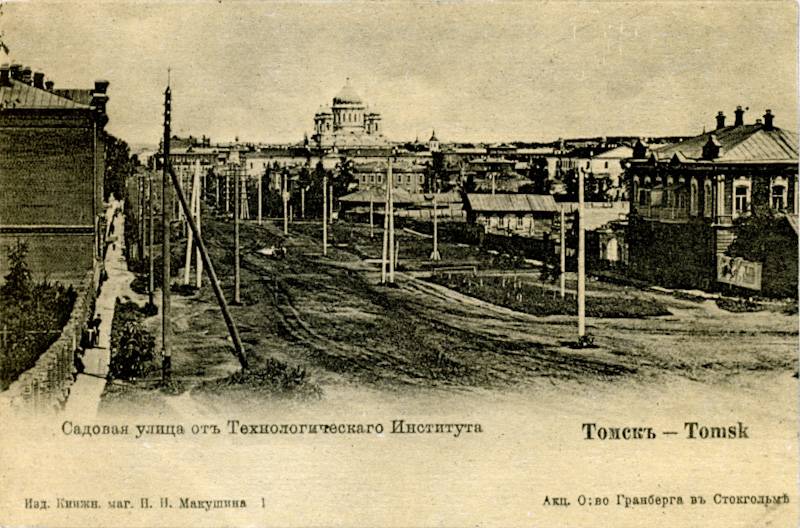
Higher education climbed even in the wilderness ...
Well, the conclusion from all of the above can be unambiguous. And, so to speak, at the “level of two capitals,” that is, Petrograd and Moscow, and at the level of such a blessed provincial city as Penza, the journalists, starting with the appearance of Doctor Diatropov's “Notes”, tried as best they could to do everything possible or else, to blacken the existing power in Russia and Russian statehood. At the same time, they managed to do this even in cases where they spoke from pro-government positions! For example, they printed the loyal letter of sailor Belenky, and right there they criticized the generals and admirals, and, in general, the entire military department, which allowed the defeat of Russia in the Russian-Japanese war. Meanwhile, it was absolutely clear that they had to write about the fact that the main blame for the defeat lay with the revolutionaries, who decomposed the rear of the army, selling our military secrets to the Japanese, organizing strikes at our factories with the money they received from the Japanese!
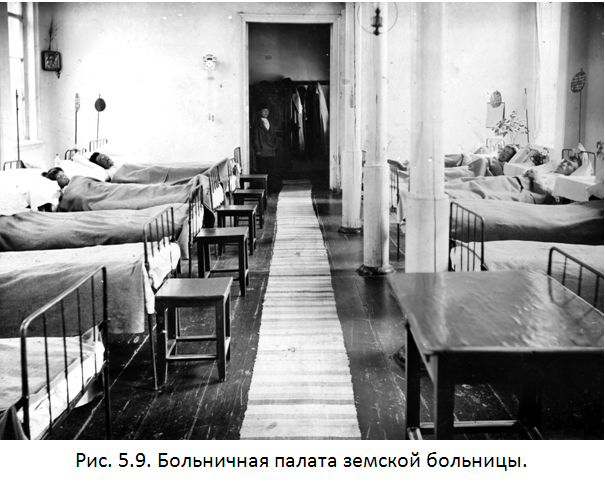
Schools and district hospitals were built. Well, such as this, for example.
But the government is also to blame, because it neglected the information security of its own security and did not even think that “water wears away a stone,” which means that sooner or later the amount of negative information will turn into another quality and result in the February and then the October revolution. . At the same time, he was distinguished by astounding good nature, strange as it may sound, in relation to his enemies, even if some of them happened to be hung up, held in the Peter and Paul Fortress, or banished for three years to Shushenskoye under the “lamp with a green lampshade ". Meanwhile, the conditions of the reference there the same Ilyich were more than preferential: decent maintenance at the expense of the treasury, so that on the table he always had meat there. He hunted there, wandered through the taiga with a gun, again, he discharged his wife to him, and in the end he wasn’t at all exhausted, but on the contrary, he recovered his health and finished eating! Meanwhile, it was enough to introduce the death penalty for just one membership in the party of the Socialist Revolutionaries or the Bolsheviks and ... everything - no one would dare to join them. And there is no party, and there is no unifying mass of force!
Women appeared in Russia who were not afraid to fly on the then airplanes. Note that the passenger "flyer" legs are connected. "For moral and moral reasons!"
And, of course, all of our Russian intelligentsia, and the newspapers were not published by men at all, for some reason, for all their education, they did not understand at all, and perhaps they did not want to understand that if they would give ordinary people freedom, then ... no maids no polomoyk, no cooks (which even the families of the gymnasium teachers had then, not to mention the “poor professors” of universities - authors' note) they will not have, and they will have to wash themselves and the floors in the apartment themselves wash, besides and also write to the newspaper or lecture, standing behind the chair ! The simple feeling of self-preservation should have told them that the people would surely remember all this “their superiority of mind” and social status and punish them for “dissimilarity”. And although they couldn’t foresee the “professorial steamboat” at that time, they should know better the boorish and envious type of many of our people, their envy of the people of “pure labor” - “I put on my glasses and think that everything is possible, but also wearing a hat! ”- and not to let the genie out of the bottle.
Moreover, history by that time had already clearly and more than once managed to prove that those who should be enslaved, enslaved anyway ... but ... our journalists either didn’t know this, or simply didn’t want to know, and acted like people who burned the house, just to warm yourself a little by the fire! Of course, they deliberately did not oppose Russia and for the most part did not want what happened then, but everything turned out right according to the popular saying: “a bad head, it doesn’t give rest”, and in the case of our domestic journalism, the end of the ХIX - the beginning of the twentieth century in a different way, well, you just can’t say it!
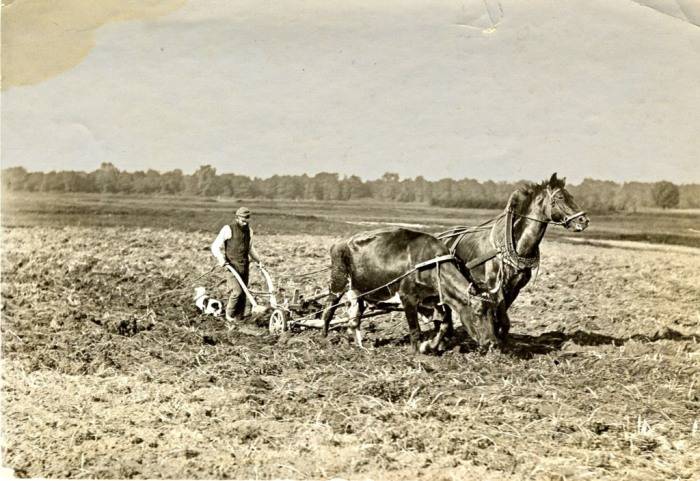
Well, and plowed for the most part is still like this ...
PS A very interesting factual material about the Penza zemstvo and the reflection of its activities in the periodical press of that time is contained in the dissertation of Anna Yuryevna Piterova “Penza provincial press about zemstvo activities in the period from 1864 to 1917: On the example of“ Penza provincial sheets ”and“ Penzensky Bulletin zemstvo ": dissertation ... candidate of historical sciences: 07.00.02. - Penza, - 248 p., Protected in 2005 year.

The interior of the noble house "Silver Age".
To be continued ...
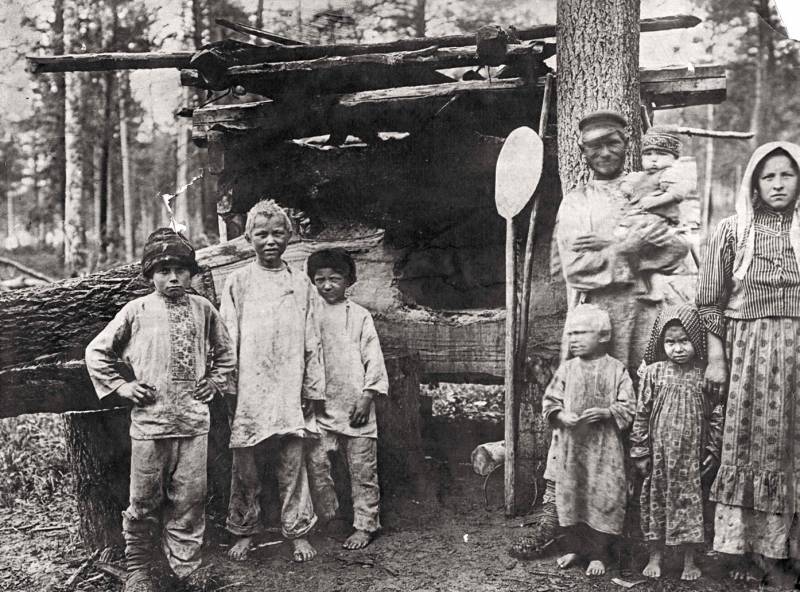
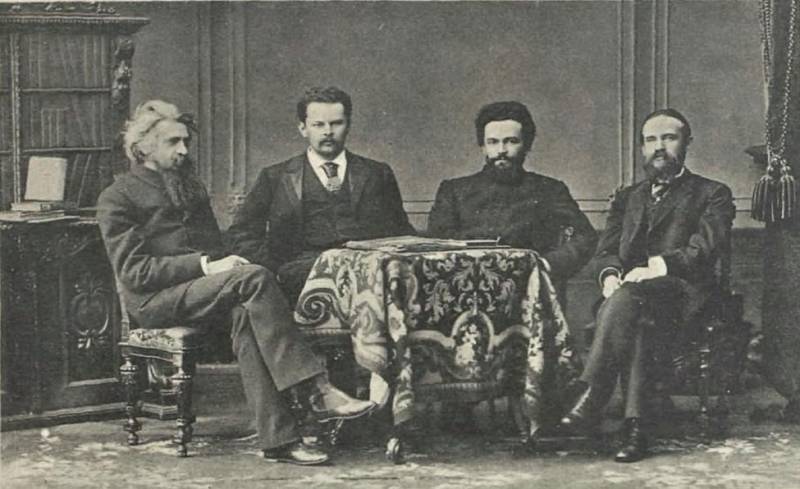
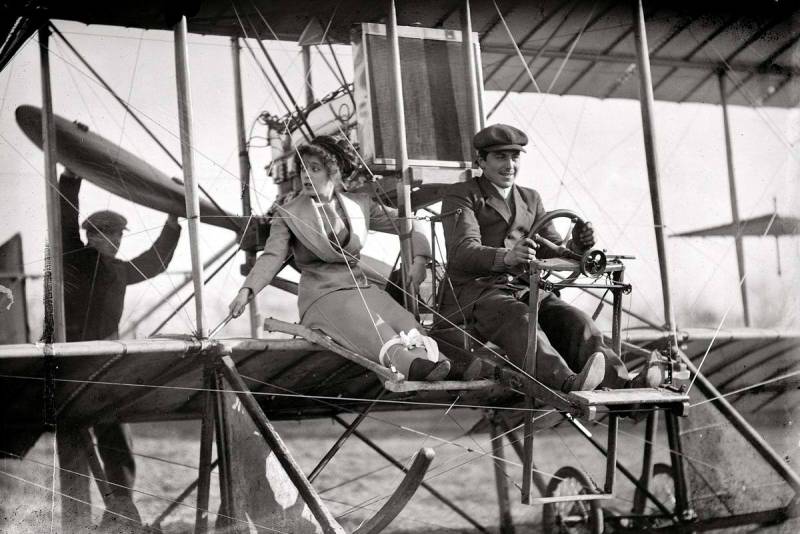
Information